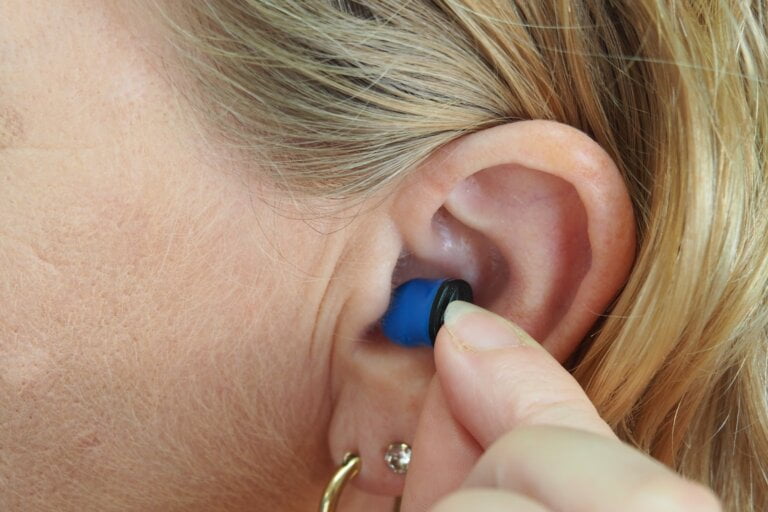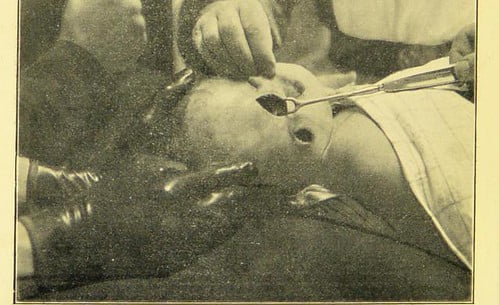Stay Ahead of the Curve: Engaging in Microsuction Workshops and Seminars
Last Updated on 25th April 2024 by Admin
Microsuction is an increasingly popular technique used in the field of ear care for the safe and effective removal of excess earwax. As this method gains recognition and demand, professionals in the healthcare industry are seeking opportunities to enhance their skills and stay ahead of the curve. Engaging in microsuction workshops and seminars is an excellent way to continuously improve one’s expertise and provide the best possible care to patients.
Why Engage in Microsuction Workshops and Seminars?
- Stay Updated with the Latest Techniques: Microsuction workshops and seminars offer a platform to learn about the most recent advancements in the field. As technology and methodologies evolve, it is essential for healthcare professionals to stay informed and adapt their practices accordingly. Attending these events allows professionals to acquire knowledge directly from experts who are well-versed in the latest techniques and industry trends.
- Professionals who engage in microsuction workshops and seminars have the opportunity to learn about the latest tools and equipment used in the procedure. They can stay updated on advancements such as the development of more efficient suction pumps and improved specula designs, which can enhance the safety and effectiveness of the procedure.
- By staying updated with the latest techniques, professionals can ensure they provide the best possible care to their patients. They can learn about innovative approaches to earwax removal, such as the use of specialized microscopes or endoscopes to improve visualization during the procedure.
- Keeping up with the latest techniques also allows professionals to stay ahead of their competition. By offering cutting-edge services, they can attract more patients and establish themselves as industry leaders in the field of ear care.
- Hands-On Training: Workshops and seminars provide an opportunity for hands-on training, which is crucial for mastering microsuction skills. Participants can practice under the guidance of experienced instructors, ensuring they develop the necessary dexterity and precision required for this delicate procedure. Through practical exercises, professionals can refine their techniques and gain confidence in their abilities.
- Hands-on training allows professionals to apply theoretical knowledge in a practical setting. They can practice the correct positioning and manipulation of instruments, ensuring they perform the procedure with utmost precision and minimize the risk of complications.
- Participants can also learn about proper infection control measures during hands-on training. They can understand the importance of maintaining a sterile environment and learn techniques to prevent cross-contamination, ensuring the safety of both the healthcare provider and the patient.
- The hands-on nature of these workshops and seminars enables professionals to receive immediate feedback from instructors. They can address any mistakes or areas of improvement in real-time, leading to continuous skill enhancement and refinement.
- Networking and Collaboration: Engaging in workshops and seminars allows professionals to connect with like-minded individuals in the field. Networking with peers and experts opens doors for collaboration, knowledge sharing, and mentorship opportunities. These connections can prove invaluable in terms of professional growth and staying abreast of emerging practices and research.
- Networking with other professionals in the field of microsuction can lead to valuable collaborations. Professionals can exchange ideas, share best practices, and even collaborate on research projects to contribute to the advancement of the field.
- Attending workshops and seminars also provides a platform for professionals to find mentors who can guide them in their career development. Seasoned experts can offer valuable insights and advice, helping professionals navigate challenges and make informed decisions.
- Building a strong professional network can also lead to referral opportunities. By establishing relationships with other healthcare professionals, professionals can refer patients to trusted colleagues when necessary, ensuring comprehensive care for their patients.
- Continuing Professional Development (CPD): Many professional bodies and organizations require their members to engage in ongoing CPD activities. Microsuction workshops and seminars are recognized as credible sources of CPD, ensuring professionals meet their educational requirements while enhancing their skills. Attending these events demonstrates a commitment to professional development and maintaining high standards of care.
- Participating in microsuction workshops and seminars allows professionals to earn CPD credits, which are often necessary for maintaining professional licenses or certifications. These events provide a structured and recognized method of continuing education, ensuring professionals stay up to date with the latest developments in the field.
- Engaging in CPD activities also demonstrates a commitment to lifelong learning. By actively seeking opportunities to improve their skills and knowledge, professionals showcase their dedication to providing the highest quality of care to their patients.
- CPD activities can also enhance professional credibility. By attending reputable workshops and seminars, professionals can showcase their commitment to staying current in their field, which can boost their reputation among colleagues and patients alike.
What to Expect in Microsuction Workshops and Seminars
- Comprehensive Training: Microsuction workshops and seminars typically provide comprehensive training that covers various aspects of the procedure. This includes theoretical knowledge, practical skills, infection control measures, patient assessment, and aftercare instructions. By attending these events, professionals can gain a holistic understanding of microsuction, ensuring they can deliver safe and effective care to their patients.
- Theoretical knowledge sessions in workshops and seminars cover the anatomy of the ear, the physiology of earwax production, and the indications and contraindications for microsuction. Participants learn about the different types of earwax and their removal techniques, allowing them to tailor their approach based on individual patient needs.
- Practical skills training involves hands-on practice using simulation models or real patient volunteers. Participants learn the correct use of instruments, such as the suction pump and specula, and practice the different techniques required for successful earwax removal.
- Infection control measures are emphasized during training to ensure professionals understand the importance of maintaining a sterile environment. Participants learn about proper hand hygiene, the use of personal protective equipment, and the disinfection and sterilization of instruments.
- Patient assessment and aftercare instructions are also covered in these workshops and seminars. Professionals learn how to assess a patient’s suitability for microsuction, identify any potential complications, and provide appropriate aftercare advice to ensure optimal patient outcomes.
- Expert Instruction: Workshops and seminars are conducted by experienced healthcare professionals who specialize in microsuction. These experts share their knowledge and expertise, providing valuable insights and guidance throughout the training process. Participants can ask questions, seek clarification, and learn from the experiences of these seasoned professionals.
- Expert instructors in microsuction workshops and seminars have years of experience in the field. They have encountered various challenges and mastered the art of microsuction, making them the ideal mentors for professionals seeking to enhance their skills.
- These experts share their practical tips and tricks, offering participants a wealth of knowledge that cannot be obtained from textbooks alone. They provide guidance on troubleshooting common issues, adapting techniques to different patient scenarios, and ensuring patient comfort during the procedure.
- Participants have the opportunity to engage in meaningful discussions with the instructors, allowing them to gain a deeper understanding of the intricacies of microsuction. They can ask questions, seek clarification, and benefit from the expertise of these professionals to enhance their own practice.
- Interactive Learning: Microsuction workshops and seminars often incorporate interactive learning methods to engage participants actively. This may include group discussions, case studies, role-playing exercises, and practical demonstrations. Interactive learning not only enhances understanding but also fosters critical thinking and problem-solving skills.
- Group discussions provide a platform for participants to share their experiences, challenges, and successes. Through these discussions, professionals can learn from each other’s perspectives and gain insights into different approaches to microsuction. They can also brainstorm solutions to common problems and learn from the collective wisdom of the group.
- Case studies allow participants to apply their knowledge to real-life scenarios. By analyzing and discussing case studies, professionals can develop their critical thinking skills and learn how to approach complex cases that may require additional considerations or adaptations to the standard microsuction technique.
- Role-playing exercises can simulate challenging patient interactions, allowing professionals to practice their communication and patient management skills. These exercises can help professionals develop empathy, active listening, and the ability to address patient concerns effectively.
- Practical demonstrations by instructors provide visual examples of proper technique and can help participants visualize the steps involved in microsuction. By observing the experts in action, professionals can gain insights into the finer details of the procedure and refine their own technique accordingly.
- Demonstration of Equipment and Tools: Participants in microsuction workshops and seminars have the opportunity to explore and familiarize themselves with various equipment and tools used in the procedure. They learn about the features, functionality, and maintenance of microsuction devices, suction pumps, specula, and other related instruments. This hands-on experience enables professionals to make informed decisions when selecting and utilizing equipment in their own practices.
- Workshop participants can examine different types of microsuction devices and understand their advantages and limitations. They can learn about the importance of adjustable suction power, ergonomic design, and compatibility with different types of specula.
- Instructors demonstrate the correct setup and operation of suction pumps, ensuring professionals understand how to optimize their performance and maintain them for long-term use. They also provide guidance on troubleshooting common issues that may arise during the use of these devices.
- Participants can practice using different specula sizes and designs, gaining familiarity with their handling and the implications for patient comfort and earwax removal efficacy. By understanding the characteristics of various specula, professionals can select the most suitable ones for different patient populations and ear canal conditions.
Choosing the Right Microsuction Workshop or Seminar
When selecting a microsuction workshop or seminar, it is important to consider the following factors:
- Reputation and Credibility: Ensure that the workshop or seminar is organized by a reputable institution or recognized professional body. Research the background and credentials of the instructors to ensure they have the necessary qualifications and experience.
- Choosing a workshop or seminar organized by a reputable institution or professional body ensures that the training program meets certain standards and follows best practices in the field of microsuction.
- Researching the background and credentials of the instructors can provide insights into their expertise and reputation. Look for instructors who have extensive experience in performing microsuction and have a track record of delivering high-quality training.
- Curriculum and Content: Review the workshop or seminar curriculum to assess whether it covers the topics and areas of interest that align with your learning goals. Look for a comprehensive program that offers a balance between theoretical knowledge and practical skills.
- A well-designed curriculum should cover the essential theoretical knowledge required for understanding the principles and techniques of microsuction. It should also include practical sessions that allow participants to apply the knowledge in a hands-on setting.
- Consider your specific learning goals and ensure that the workshop or seminar curriculum addresses them. Whether you are a beginner seeking a foundational understanding of microsuction or an experienced professional looking to refine your skills, choose a program that caters to your needs.
- Reviews and Testimonials: Seek feedback from previous participants or read testimonials to gauge the quality of the workshop or seminar. Positive reviews and testimonials are good indicators of a well-structured and valuable learning experience.
- Reviews and testimonials provide insights into the experiences of past participants and can help you assess the quality of the training program. Look for testimonials that highlight the practical applicability of the knowledge gained and the effectiveness of the instructors in imparting the necessary skills.
- Consider reaching out to colleagues or professional networks to gather firsthand feedback about specific workshops or seminars. Personal recommendations can provide valuable insights and help you make an informed decision.
- Cost and Location: Consider the cost and location of the workshop or seminar, including any additional expenses such as travel and accommodation. It is essential to choose an option that fits your budget and is easily accessible.
- Evaluate the cost of the workshop or seminar in relation to the value it provides. While it is important to consider the financial aspect, prioritize the quality of the training program and the expertise of the instructors.
- Assess the feasibility of attending the workshop or seminar in terms of location and logistics. Consider the travel time, accommodation options, and any additional expenses that may be incurred. Opt for a workshop or seminar that offers convenience without compromising the quality of the learning experience.
In conclusion, engaging in microsuction workshops and seminars is an excellent way for healthcare professionals to stay ahead of the curve and continuously enhance their skills in ear care. These events offer the opportunity to learn the latest techniques, receive hands-on training, network with peers and experts, and fulfill continuing professional development requirements. By choosing the right workshop or seminar, professionals can ensure they receive comprehensive training and leave with the knowledge and confidence to provide exceptional care to their patients.
FAQ
Q1: Why should I engage in microsuction workshops and seminars?
A1: Engaging in microsuction workshops and seminars allows healthcare professionals to stay updated with the latest techniques, receive hands-on training, network with peers and experts, and fulfill continuing professional development requirements.
Q2: What can I expect in microsuction workshops and seminars?
A2: Microsuction workshops and seminars provide comprehensive training, expert instruction, interactive learning methods, and demonstrations of equipment and tools used in the procedure.
Q3: How do I choose the right microsuction workshop or seminar?
A3: When selecting a microsuction workshop or seminar, consider factors such as the reputation and credibility of the organizer, the curriculum and content of the program, reviews and testimonials from previous participants, and the cost and location of the event.
Q4: What are the benefits of attending microsuction workshops and seminars?
A4: Attending microsuction workshops and seminars allows professionals to stay updated with the latest techniques, enhance their skills through hands-on training, network and collaborate with peers and experts, and fulfill continuing professional development requirements.







